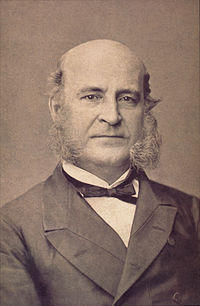José Paranhos, Viscount of Rio Branco
| The Viscount of Rio Branco | |
|---|---|

Viscount of Rio Branco, in 1879
|
|
| President of the Council of Ministers | |
|
In office 7 March 1871 – 25 June 1875 |
|
| Monarch | Pedro II |
| Preceded by | José Antônio Pimenta Bueno |
| Succeeded by | Luís Alves de Lima e Silva, Duke of Caxias |
| Personal details | |
| Born |
José Maria da Silva Paranhos 16 March 1819 Salvador, Bahia, Kingdom of Brazil |
| Died | 1 November 1880 (aged 61) Rio de Janeiro City, Rio de Janeiro, Empire of Brazil |
| Political party |
|
| Spouse(s) | Teresa de Figueiredo Faria |
| Occupation | Politician |
| Religion | Roman Catholic |
| Signature | |
José Maria da Silva Paranhos, the Viscount of Rio Branco (16 March 1819 – 1 November 1880) was a politician, monarchist, diplomat, teacher and journalist of the Empire of Brazil (1822–1889). Rio Branco was born in Salvador, in what was then the Captaincy of Bahia, to a wealthy family, but most of the fortune was lost after his parents' deaths early in his childhood.
Rio Branco attended Brazil's Naval School and became a midshipman in 1841. Later that year he was enrolled in the Army's Military Academy, eventually becoming an instructor there. Rather than continue to serve in the military, he became a politician in the Liberal Party. In 1845, he was elected a member of the provincial house of representatives of Rio de Janeiro province, site of the national capital of the same name. Rio Branco rose to power within the province under the tutelage of Aureliano Coutinho, Viscount of Sepetiba—a veteran politician who held tremendous influence over the young and inexperienced Emperor Pedro II. He temporarily abandoned politics after Aureliano Coutinho's fall from grace and the subsequent dissolution of the Liberal Party.
Rio Branco's work in the press, highlighting threats posed by the armed conflicts in the Platine republics (Argentina and Uruguay), attracted the attention of Honório Hermeto Carneiro Leão, Marquis of Paraná, who invited him to act as secretary on a diplomatic mission to Montevideo. They were successful in forging alliances, which contributed to the eventual fall in 1852 of Juan Manuel de Rosas, an Argentine dictator who had declared war on Brazil. In 1853 Rio Branco joined the Marquis of Paraná's Conservative Party as well as the cabinet over which the latter presided. He rose rapidly through the Conservative ranks during the early 1860s when many colleagues joined members of the defunct Liberal Party to form a new party. Rio Branco was sent to Uruguay in late 1864, tasked with bringing a diplomatic end to the Uruguayan War. Although successful, he was abruptly dismissed from his post. In 1869, he was recalled and dispatched to Paraguay, this time to negotiate an end to its war with Brazil. His successful efforts in concluding a peace with Paraguay were recognized, and Pedro II ennobled him, making him Viscount of Rio Branco (Portuguese for "White River").
...
Wikipedia
